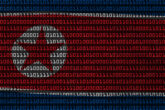January 31, 2018
The Cataclysm That Would Follow a 'Bloody Nose' Strike in North Korea
H.R. McMaster’s broken rationale for confronting Kim Jong Un
Since last summer, National Security Advisor H.R. McMaster has been building a case for the use of preventive force against North Korea. In interviews and public statements, he has called Kim Jong Un, the leader of North Korea, irrational and undeterrable. The implications of such a characterization are important: If a leader is irrational, he is, by definition, incapable of making the cost-benefit calculations necessary to ensure his own survival. No one can affect his cost calculations.
McMaster has also said that he believes Kim is acquiring nuclear weapons and long-range missiles to help him conquer South Korea. (Bringing a reunified Korean Peninsula under Pyongyang’s control has long been a goal for North Korea.) Under this logic, if Kim can threaten the U.S. homeland with his intercontinental ballistic missiles (ICBMs), he’ll be able to hold U.S. forces at bay while he tries to take the South. Nuclear deterrence and U.S. military superiority, in other words, would not be enough to halt Kim’s mission of peninsular conquest. New reporting now indicates that Victor Cha, the Trump administration’s nominee for the position of ambassador to South Korea, is no longer under consideration for the post, in part because of his misgivings about using force against North Korea. The administration’s interest in striking the North appears to be all too real.
In a recent piece for The Atlantic, James Jeffrey defended McMaster’s logic for preventive war. Jeffrey argued that the national security adviser may possess a superior understanding of Kim’s aims. These aims, Jeffrey wrote, include the acquisition of a nuclear-tipped ICBM; the undermining of America’s security guarantees to its allies in the region; and, ultimately, the invasion and reclamation of the South. While using force against North Korea would be destructive, it may also be the “least bad” alternative to Kim’s eventual attempt at conquest, according to Jeffrey.
Read the full op-ed in The Atlantic.
More from CNAS
-
Assessing the Terror Threat Landscape in South and Central Asia and Examining Opportunities for Cooperation
Watch...
By Lisa Curtis
-
Indo-Pacific Security / Energy, Economics & Security
What Will North Korean Cybercrime Look Like in 2022?North Korean hackers will likely continue to employ more phishing campaigns in the future while tailoring their level of obfuscation based on the target’s sophistication....
By Jason Bartlett
-
Duyeon Kim testifies before European Parliament's Committee on Foreign Affairs
Chairman McAllister, Vice Chairs, DKOR Chairman Mandl, and distinguished Members of the Committee on Foreign Affairs and the European Parliament, thank you for the opportunity...
By Dr. Duyeon Kim
-
China’s New Land Borders Law Is a Nightmare for North Korean Refugees
A combination of high-level pressure from foreign governments and steady support for grassroots refugee resettlement organizations and programs is the most practical way to as...
By Jason Bartlett


